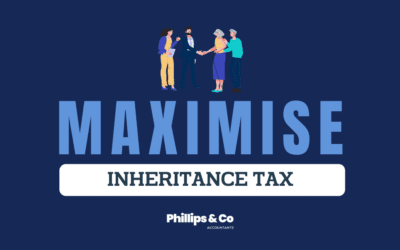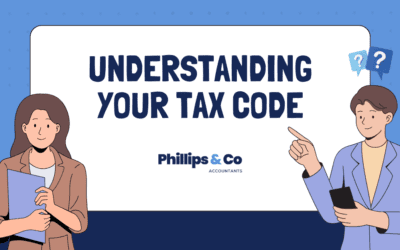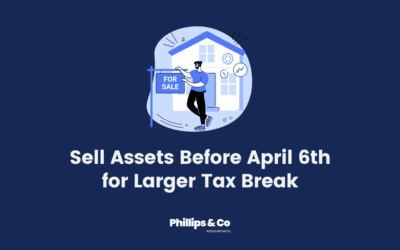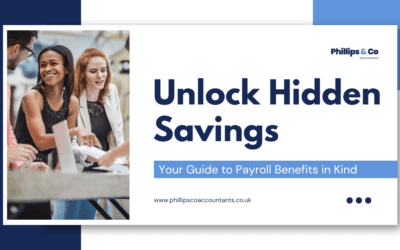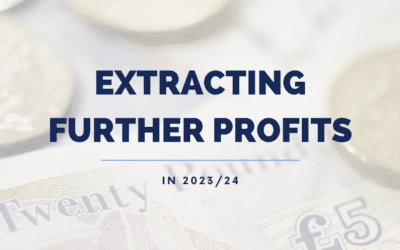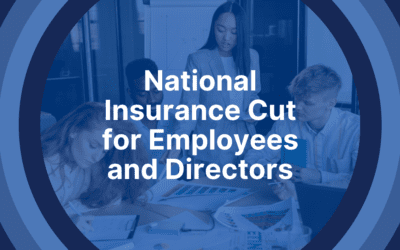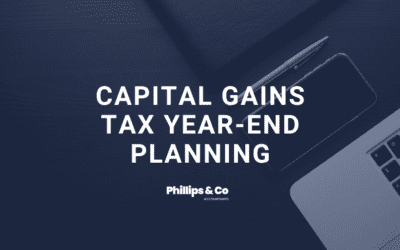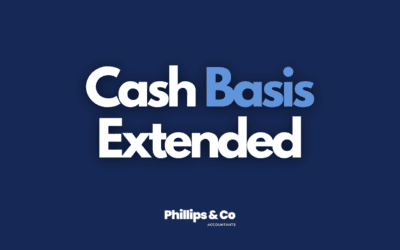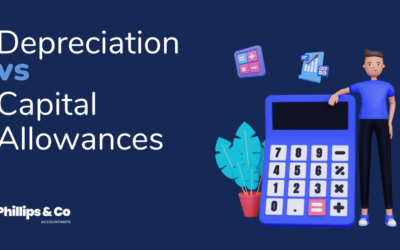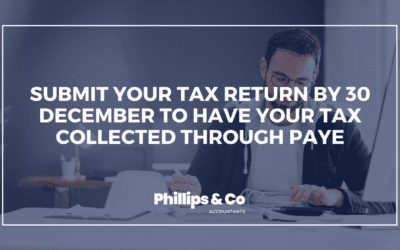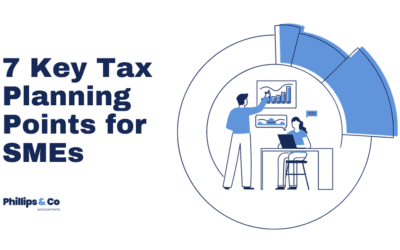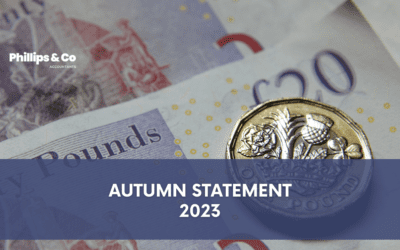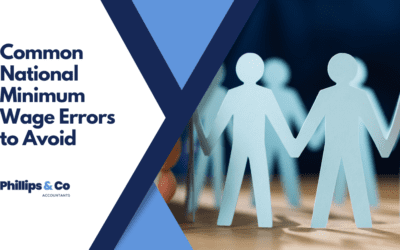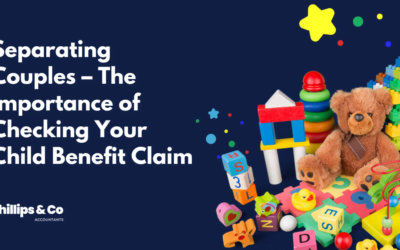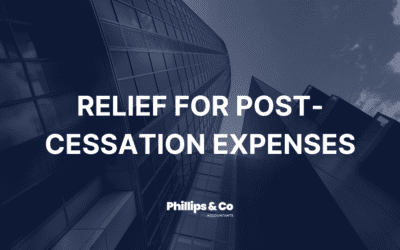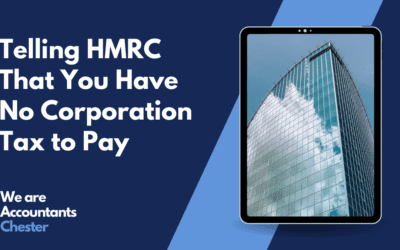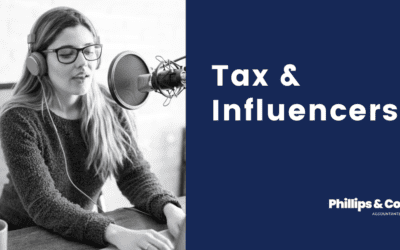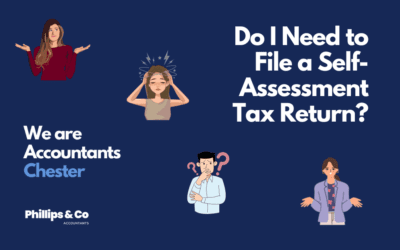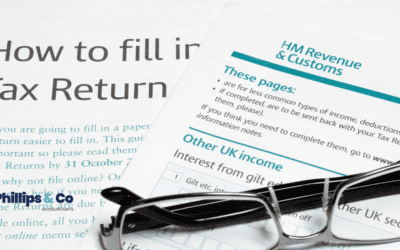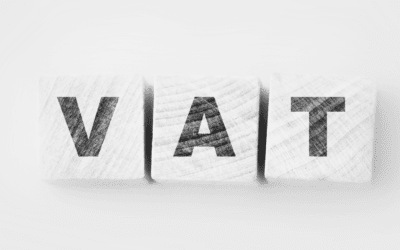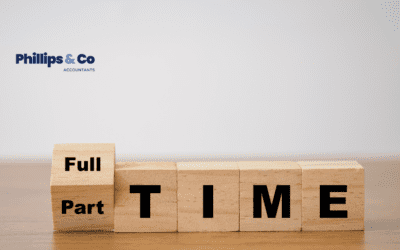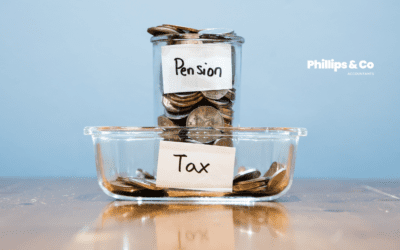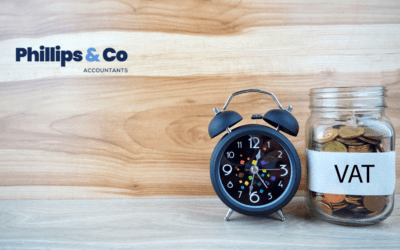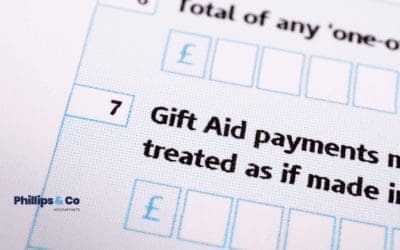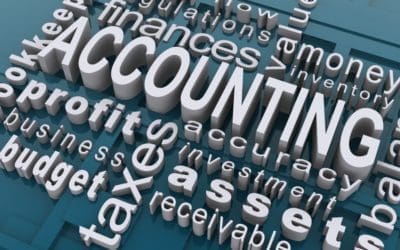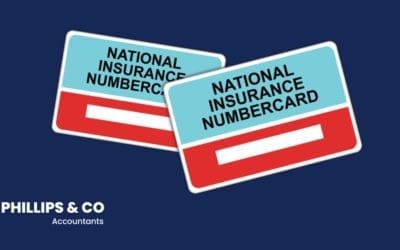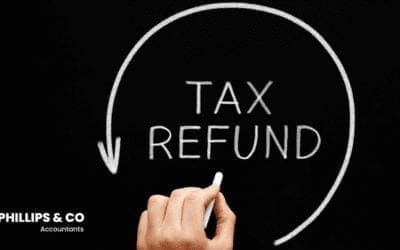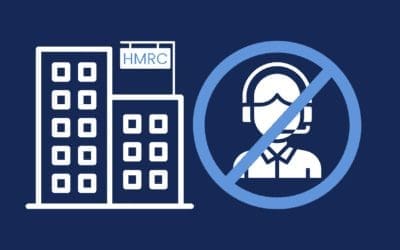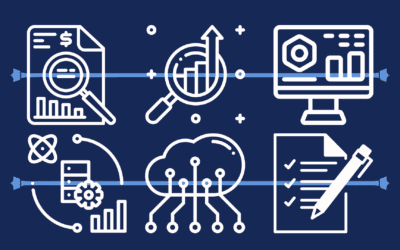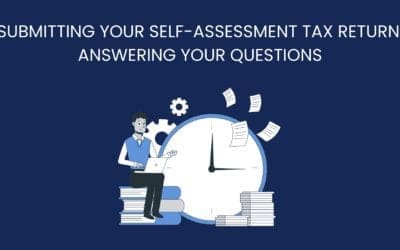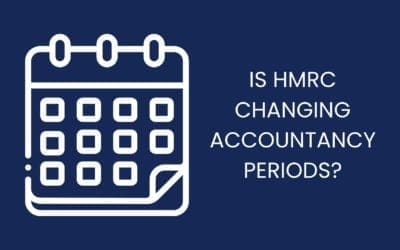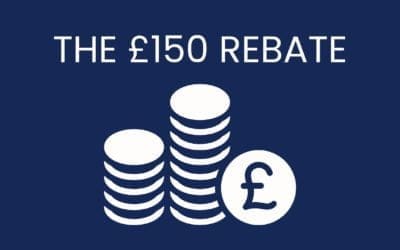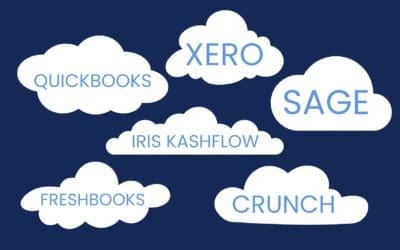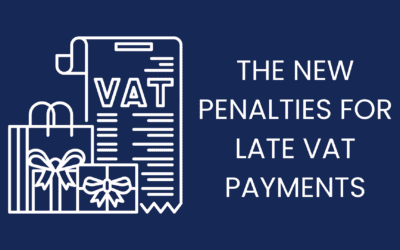Tax Blog
Accountants Chester: Maximising Your Savings
Our tax blog is dedicated to sharing the latest UK tax news and developments. We also feature tax tips for sole traders, employed individuals, limited company directors, and partners in a partnership. Feel free to get in touch to discuss any of the subjects in our tax blog.
If you would like to receive our free, no-obligation tax tip emails, please sign up here.
Navigating Self-Employment National Insurance
As a self-employed professional in Chester, understanding National Insurance Contributions (NICs) is crucial for accurate tax calculations and avoiding future surprises. Let’s break down the nuances of Class 4 NICs:
Check Your National Insurance Record
Paying National Insurance contributions allows individuals to earn qualifying years, which in turn provides them with entitlement to the state pension and certain contributory benefits. Entitlement may also be provided by the award of National Insurance credits.
Maximise Inheritance Tax Allowances
It is often said that inheritance tax (IHT) is a voluntary tax, and one that can be avoided if you give away sufficient assets at least seven years before you die so the value of your estate is sheltered by your available nil rate bands.
Understanding Your Tax Code: A Key to Accurate Tax Payments
As a taxpayer in the UK, understanding your tax code is essential for ensuring you pay the correct amount of tax throughout the year. Your tax code is a combination of letters and numbers that directly influence how your income tax is calculated under the Pay As You Earn (PAYE) system. An incorrect tax code could mean overpaying or underpaying taxes, both of which you likely want to avoid.
Sell Assets Before April 6th for Larger Tax Break
Sell assets before April 6th for a larger tax break. Make use of the higher annual exemption amount for 2023/24.
Pre-Election Budget
The Chancellor’s Spring Budget 2024 was light on surprises, focusing on extending previous measures and making minor adjustments.
Selling Online: When to Tell HMRC
Recent headlines about changing tax rules for online sellers may have caused some confusion. While there are no immediate changes to how online sellers are taxed, there are new reporting requirements for digital platforms.
Unlock Hidden Savings: Your Guide to Payroll Benefits in Kind
Employers in Chester have the option to handle taxable benefits in kind through their payroll system (payrolling) instead of reporting them to HMRC on the employee’s P11D at the end of the tax year. However, this method is only available if the employer is registered to payroll benefits.
Understand Motoring Expenditure and NIC Refunds
“Need help navigating tax rules for business mileage? Accountants Chester can advise on the approved mileage rates (currently 45p per mile for the first 10,000 miles, then 25p) to ensure you maximize tax-free allowances when using your own car for work.”
Boost Your Retirement Savings Before April Deadline
As the end of the tax year approaches, it is prudent to review your pension contributions for the year and consider whether it is worth making further contributions before 6 April 2024. Remember, any annual allowances brought forward from 2020/21will be lost if not used by this date.
Extracting Further Profits in 2023/24
As the end of the tax year approaches, it is prudent for those operating their business as a personal or family company to review the profits extracted so far in the tax year and to consider whether it is beneficial to take further profits before the end of the tax year.
National Insurance Cut for Employees and Directors
In his November 2023 Autumn Statement, the Chancellor announced a reduction in the main primary rate of Class 1 National Insurance from 12% to 10%. Rather than waiting until the start of the 2024/25 tax year to bring in the change, it applies from 6 January 2024.
Capital Gains Tax Year-End Planning
No one wants to pay more tax than they need to and, where possible, disposals should be timed to ensure that the best result is achieved from a tax perspective. Where a disposal is made around the end of the tax year, accelerating or delaying the disposal date can impact on the tax that is paid. This is particularly true this year, as the capital gains tax annual exempt amount falls from £6,000 for 2023/24 to £3,000 for 2024/25.
Cash Basis Extended
If you are running an unincorporated business, either as a sole trader or as a partnership comprising only partners who are individuals, you can use the accruals basis to prepare your accounts or, if you are eligible, the cash basis.
NIC Payable By the Self-Employed from April 2024
The self-employed have historically paid two classes of National Insurance – Class 2 and Class 4. However, this is set to change from April 2024 with the abolition of Class 2 National Insurance contributions.
Depreciation vs Capital Allowances
Tax and accounting rules are not identical and it is sometimes necessary to adjust the accounting profit to arrive at the profit for tax purposes. One area where the rules differ is in the write-off of capital expenditure.
Can You Benefit from the Marriage Allowance?
Married couples and civil partners can take advantage of the marriage allowance to transfer 10% of their personal allowance to their partner where this would otherwise be wasted.
Submit Your Tax Return By 30 December to Have Your Tax Collected Through PAYE
Although the deadline for submitting your 2022/23 tax return online is midnight on 31 January 2024, if you owe tax and you want to have it collected through PAYE via an adjustment to your tax code, you will need to file your tax return by the earlier date of 30 December 2023.
7 Key Tax Planning Points for SMEs
The recent Autumn Statement introduced several tax changes that could significantly impact small and medium-sized enterprises (SMEs).
Autumn Statement 2023
In an effort to boost the UK economy, Chancellor Jeremy Hunt unveiled a package of measures that includes business tax cuts and reforms to national insurance contributions.
Common Minimum Wage Errors to Avoid
Workers are entitled to be paid the National Living Wage (NLW) or Minimum Wage (NMW) for their age. Employers who fail to do this run the risk of financial penalties and of being ‘named and shamed’. To help employers avoid mistakes, HMRC have produced a checklist of 18 common errors.
Relief for Pre-Trading Expenses
In setting up a trade it is inevitable that expenses will be incurred before the trade actually commences. Expenses may be incurred on acquiring premises and kitting them out, on buying stock, on office supplies, on professional advice, on marketing, on software, on setting up a website, on legal fees and suchlike.
Separating Couples – The Importance of Checking Your Child Benefit Claim
The High-Income Child Benefit Charge (HICBC) is a tax charge that claws back child benefit where the claimant or his or her partner have adjusted net income of at least £50,000.
Relief for Post-Cessation Expenses
The end of a business will not necessarily mean that no further expenses are incurred. Where expenses are incurred after the business has ceased, tax relief may be available.
100 Days to Self-Assessment Deadline
With just 100 days left to submit Self-Assessment tax returns for the 2022-23 tax year, HM Revenue and Customs (HMRC) is reminding customers to get prepared.
Beware of Diverting Dividends to Minor Children to Fund Education
Owners of personal and family companies frequently pay themselves a small salary and extract further profits as dividends.
Telling HMRC That You Have No Corporation Tax to Pay
If you have a company that is dormant and you have filed your company tax return showing that no tax is due, you may think that there is nothing further you need to do as regards the lack of corporation tax due. After all, you have filed a return which shows that you have nothing to pay.
Key Person Insurance – When Can You Claim A Deduction?
The profitability or earning capacity of a business may depend on one person or on a small number of people. Where this is the case, the business may be seriously compromised if that person, or one of those persons, falls seriously ill or has an accident.
Tax & Influencers
Earlier this year, HMRC sent ‘nudge’ letters to social influencers who they suspect may not have declared the tax that they owe. They have also cracked down on gifts provided to influencers in return for promoting brands.
Do I Need to Complete a Tax Return?
Even if you pay all your tax through PAYE, you may still need to complete a Self-Assessment tax return if you are a high earner. For 2022/23 and earlier tax years, this is the case if your income is more than £100,000. However, for 2023/24 onwards, the trigger threshold is increased to £150,000.
Are You Using the Correct Tax-Free Mileage Rates?
As an employer, you can pay your employees tax-free mileage payments where they use either their own car or a company car for business journeys.
Take Advantage of the Tax Exemption for Mobile Phones
The tax legislation contains a number of exemptions which allow benefits in kind to be provided to employees without a tax charge arising. Some of the exemptions are more useful than others. One of the more valuable ones is that for mobile telephones.
Self-Serve Time to Pay for VAT
The facility to set up their own Time to Pay arrangement has now been extended to VAT-registered businesses.
Should I File My Tax Return Early?
If you need to file a Self Assessment tax return for 2022/23, you have until midnight on 31 January 2024 in which to do this, as long as you file online. However, HMRC have been encouraging taxpayers to file their tax return early. Is this worthwhile and what are the benefits?
Making Tax-Free Mileage Payments
If you have employees in Chester, who use either their own car or a company car for business mileage, you can pay mileage allowances tax-free up to certain limit. However, if you pay more than the permitted amount, the excess is taxable and liable to Class 1 National Insurance
Do We Need to Register for VAT?
If you make taxable supplies in Chester, you may need to register for VAT if your taxable turnover reaches the VAT registration threshold of £85,000.
How to Appeal a Tax Penalty
There are various reasons why HMRC may issue a tax penalty. You may receive a penalty if you file your tax return late, your tax return is inaccurate, you are late paying tax that you owe or you fail to keep accurate records.
NIC Advantages of Part-Time Workers
Employers looking to take on new staff may wish to consider employing two or more part-time workers rather than one full-time worker.
Tax and Tips
The Employment (Allocation of Tips) Act 2023 sets out a new legal framework for the fair allocation of tips. A new Code of Practice is to be introduced and employers will have a legal obligation to adhere to the Code.
Are you Entitled to Small Business Rate Relief?
You may be entitled to small business rate relief if you only have one business property, and it has a rateable value of less than £15,000. Read this article to find out when the relief applies and how much you are entitled to.
Utilise the deduction for paid and reimbursed expenses
Employees often need to incur expenses when undertaking their jobs. The nature of the expense may vary depending on the job, but typical expenses include travel and subsistence expenses and fees and subscriptions.
Mobile phones – a worthwhile benefit
The tax system contains a number of exemptions, some of which are more useful than others. One of the more valuable exemptions is that for mobile telephones.
Preserving the personal allowance
The personal allowance is set at £12,570 for 2023/24. However, not everyone is able to benefit from the personal allowance.
Beware the new VAT late submission penalties
A new penalty regime was introduced for VAT from 1 January 2023. The new regime comprises late submission penalties and late payment penalties. Here we look at the penalty regime for late returns.
Have you declared your dividends correctly?
There are various rules that govern the payment of dividends. Read this article to discover the conditions that must be met to ensure dividends are lawful.
Giving away money free of IHT
The IHT legislation contains a number of exemptions which can be used to give away money free of IHT. Read this article to find out how to take advantage of the various exemptions.
Beware of gift aid clawback
If you have not paid sufficient tax to cover that reclaimed by charities on your gift aid donations, HMRC may look to you to pick up the bill. Read this article to find out how to avoid falling into this trap.
Declaring Instagram income
How to Declare Instagram Earnings in the UK
If you are an Instagram influencer in the UK, you may be wondering how to declare your earnings to HMRC. Here is a guide to help you do just that.
Full expensing for companies
The super-deduction, which allowed companies to claim an immediate deduction of 130% of their qualifying expenditure, came to an end on 31 March 2023. It was replaced with full expensing.
Should I hire an accountant?
The answer to the question, Should I hire an accountant?, depends upon a number of factors, including the size and complexity of your business, your own financial knowledge and experience, and your budget.
If you are a small business owner with a relatively simple financial situation, you may be able to handle your own accounting without too much difficulty.
Will an accountant save me money?
Yes, an accountant can save you money in a number of ways. For example: Helping you avoid penalties. Accountants can help you file your taxes on time.
Capital gains tax on separation and divorce
Spouses and civil partners enjoy certain tax breaks, including the ability to transfer assets between them at a value that gives rise to neither a gain nor a loss. Prior to 6 April 2023, a couple are only able to benefit from no gain/no loss transfers until the end of the tax year in which they separate. However, from 6 April 2023, the rules are relaxed in certain situations.
How do I find a good accountant UK?
Our tips on how to find a good personal accountant in the UK, include:
Get recommendations from friends, family, or colleagues. First-hand feedback from people who have used the accountant’s services, is one of the best ways to find a new accountant.
Do your research online. There are a number of websites that list accountants in the UK, along with reviews to read. This can be an excellent way of narrowing down your options.
Why is my accountant so expensive?
The cost of hiring an accountant can depend on:
Experience: More experienced accountants typically charge a higher rate per hour as they have a deeper understanding of accounting principles and tax laws, and can provide more comprehensive advice and services.
Location: Accountants in cities, such as London, will charge more per hour than those in smaller towns or rural areas.
Are accountants worth it?
Whether or not an accountant is worth engaging depends on your individual circumstances. If you are not comfortable with your finances or have complex tax issues, then engaging an accountant can be a wise investment.
How much is an accountant per hour UK?
The average hourly rate for an accountant in the UK is £25-35. However, this may vary depending on the accountant’s experience, location, and the type of services they offer. For example, accountants who specialise in tax planning may charge more per hour than those who only offer basic bookkeeping services.
Trivial Benefits – make use of the exemption
Trivial benefits have their own tax exemption, which if used wisely can be used to treat employees. The exemption can also be used by personal and family companies as part of a tax-efficient profit extraction strategy.
Mileage Allowances – What Can You Pay Tax-Free?
Employees often need to undertake business trips and it is common practice to reimburse the employee’s fuel costs by means of a mileage allowance. The tax rules allow mileage payments to be made tax-free up to certain limits
Pension changes
In his March Budget, the Chancellor announced a number of changes to the pension tax rules, including an increase in the annual allowance and the abolition of the lifetime allowance.
Claiming relief for employment expenses
You may be able to claim tax relief if you incur expenses in doing your job which are not met by your employer. Read this article to find out how to make a claim.
Hybrid workers and relief for travel expenses
Read this article to find out how the rules governing travel expenses apply to employees with hybrid working arrangements.
Family and personal companies – optimal salary for 2023/24
Taking a small salary and extracting further profits from a personal or family company as dividends is a tax-efficient strategy. Read this article to find out what is the optimal salary for 2023/24.
Taxation of Dividends in 2023/24
From 6 April 2023, the dividend allowance is to fall to £1,000. Read this article to find out how this and other tax changes will affect the tax that you pay on your dividend income in 2023/24.
NIC landscape for 2023/24
Read this article to find out about the National Insurance rates and thresholds applying for 2023/24.
You must declare your TikTok income
Since 2020, millions of us have flocked to the online streets of TikTok and have made a penny or two. But now you have to tell HMRC exactly what you’ve made.
New corporation tax regime
Corporation tax is being reformed from 1 April 2023. Read this article to find out how your corporation tax liability will be calculated under the new rules.
Spring Budget 2023
Jeremy Hunt’s 2023 Spring Budget had a strong focus on ‘back to work’ initiatives and economic growth, whilst being light on tax cuts.
Is an alphabet share structure still worthwhile?
The dividend allowance is reduced from £2,000 to £1,000 from 6 April 2023 and to £500 from 6 April 2024. Read this article to find out whether an alphabet share structure is still beneficial.
Claim the Employment Allowance for 2023/24
Eligible employers can claim an Employment Allowance worth up to £5,000 to offset against their secondary Class 1 National Insurance liability. Read this article to find out whether you are eligible and how to claim.
How to claim a tax refund
If you have paid too much tax, you will be able to get a refund from HMRC. The mechanics for obtaining your refund depending on how the overpayment arose. Claims must be made within four years from the end of the tax year to which the refund relates.
Basis period reform – Preparing for the transition
Basis period reform – From 2024/25 unincorporated businesses will be taxed on their profits for the tax year. Read this article to find out about the new rules and the transition from the current year basis to the tax year basis. #basisperiodreform
Taxation of company vans in 2023/24
The van benefit charge and van fuel benefit charge applying for 2023/24 have now been set. Read this article to find out the new charges and when they apply.
Beat the reduction in the additional rate tax threshold
For a brief period it seemed that the days were numbered for the additional rate of tax following the announcement in the ill-fated mini Budget that it was to be scrapped. Like much of the mini Budget, its planned abolition was swiftly reversed. However, this was not the end of the additional rate tax saga; the Autumn Statement delivered a further plot twist with the announcement that the additional rate threshold is to fall to £125,140 from 6 April 2023.
Pension Payments – What Tax Relief is Available?
Pension Payment Tax Relief – To encourage pension savings, tax relief is available on contributions made to registered pension schemes. However, there are limits on the contributions that can qualify for relief, and punishing tax charges can apply if these limits are exceeded.
Directors’ Loans Repayment Order
Repaying directors’ loans – The rate of tax payable by a close company on outstanding directors’ loans depends on the date on which the loan was made.
You Have to Declare Your TikTok Income
Since 2020, millions of us have flocked to the online streets of TikTok and have made a penny or two. But now you have to tell HMRC exactly what you’ve made.
How to Avoid Self-Assessment Scammers
If you’re one of the 12.2 million individuals who are due to file a self-assessment tax return this year, you need to be aware of potential scams out there.
How Management Accounts Drive Success
Management accounts are separate from the statutory accounts that you create for HMRC. Instead, they help you to make better business decisions.
Submitting Your Self-Assessment Tax Return
If you’re earning money outside of payroll and you’ve not been taxed on it yet, you’ll need to know everything about doing a self-assessment tax return.
Is HMRC Changing Accountancy Periods?
If you’re a sole trader or in a partnership and your accounting period ends between April 6th and March 30th, you need to know HMRC’s latest statement!
Facts About the £150 Council Tax Rebate
The Government is urging eligible households to claim their £150 council tax rebate as November 30th comes because, this time, the deadline won’t be extended!
7 Accountancy Software Packages Best for MTD
As ACCA-qualified accountants with countless years of experience, we’re well-versed in what can work and for who. For example, if you’re a sole trader with only a few receipts in the year, you’ll only need a fairly simple software package with a super-friendly user interface.
The New VAT Penalties for Late Payments
HMRC is rolling out a new VAT penalty scheme to come into effect for all submissions for accounting periods that start from 1st January of 2023.
What is Cloud Accounting?
As we approach the “Making Tax Digital” (MTD) deadlines, it’s more important than ever for you to know about cloud accounting and cloud bookkeeping.
Updates to Company Car Mileage Rates in 2022
On 1st June, 2022, HMRC released an update to the rates of mileage for company car drivers. However, these changes have seen a vat of criticism.
Disclaimer:
This website’s information is for guidance only. It reflects our understanding of current laws, which may change. We are not liable for any actions you take based on this information. Always seek professional advice tailored to your specific situation. We are not responsible for the content or reliability of any external websites linked from here.
Simplifying tax and accounting for Chester businesses – check out our FAQs for quick answers.
How much tax do you pay in UK?
Factors Influencing Your Tax Bill:
- Income Level: The more you earn, the higher tax rate you may fall into.
- Taxable Income: Not all income is taxed the same. Dividends, savings interest, etc. have different rules.
- Allowances & Reliefs: You might be eligible for reductions like the Personal Allowance (tax-free income) or deductions for business expenses.
UK Income Tax Brackets (2023/24):
- Personal Allowance: Up to £12,570 (tax-free)
- Basic Rate: £12,571 to £50,270 (20%)
- Higher Rate: £50,271 to £125,140 (40%)
- Additional Rate: Over £125,140 (45%)
Important Notes:
- Scotland: Has slightly different tax rates.
- Other Taxes: You may also owe National Insurance, Capital Gains Tax, etc.
Accountants Chester Are Essential
Accountants Chester specialise in UK tax law. They can:
- Calculate your precise tax liability
- Maximise your deductions and allowances
- Ensure you file returns accurately and on time
Accountants Chester Tax Blog
Where can I find the current tax rate in the UK?
- HMRC Website: The official source is the HMRC (Her Majesty's Revenue and Customs) website. Search for "UK tax rates" or "income tax rates" on https://www.gov.uk/.
- Reputable News Sources: Major financial websites and news outlets often summarise current tax rates and any recent changes.
How Accountants Chester Can Help
- Personalised Advice: Tax laws can be complex. Accountants Chester understand the latest rates and how they apply to your specific income, business, and circumstances.
- Proactive Planning: They don't just calculate your taxes, but help you with strategies to potentially minimise your tax burden legally.
- Peace of Mind: Accountants Chester ensure you're compliant and avoid unnecessary penalties or interest.
Important: Tax rates can change, especially around budget announcements. Always verify with official sources like HMRC.
Accountants Chester Tax Blog
Is UK tax 20%?
The UK has a progressive tax system, meaning you don't pay a flat 20% on all your income. Here's a basic breakdown:
- Personal Allowance: Most people can earn up to £12,570 tax-free each tax year.
- Basic Rate (20%): You'll pay 20% on a portion of your income if you earn between £12,571 and £50,270.
- Higher Rate (40%): This applies to earnings between £50,271 and £125,140.
- Additional Rate (45%): For earnings over £125,140.
Important Notes:
- These are income tax rates for England, Wales, and Northern Ireland. Scotland has slightly different tax bands.
- There are other taxes: Such as National Insurance, Capital Gains Tax, and VAT, which may also apply to you.
Accountants Chester can help
Calculating your taxes can be complicated. Accountants Chester specialise in UK tax laws and can provide the following:
- Accurate tax calculations: Ensure you pay the correct amount, avoiding penalties.
- Tax planning: Help you take advantage of legal deductions and allowances.
- Peace of mind: Knowing your tax affairs are handled correctly.
Accountants Chester Tax Blog
How much can I earn before I pay 40% tax?
The amount you can earn before paying 40% tax in the UK depends on the current tax year's thresholds. For the 2023/24 tax year, the breakdown is as follows:
- Personal Allowance: The first £12,570 you earn is tax-free.
- Basic Rate (20%): You'll pay 20% tax on earnings between £12,571 and £50,270.
- Higher Rate (40%): You'll pay 40% tax on earnings between £50,271 and £125,140
- Additional Rate (45%): Earnings over £125,140 are taxed at 45%.
Important Note: These thresholds apply to most people in the UK. Scotland has slightly different tax rates.
Example: If you earn £60,000 annually:
- £12,570 is tax-free (Personal Allowance)
- £37,699 is taxed at 20%
- £9,731 is taxed at 40%
Accountants Chester Can Help
Tax rules can be complex. Accountants Chester specialise in tax planning and can help you understand your obligations and maximise your income within the different tax brackets.
Accountants Chester Tax Blog
What are the UK tax rates?
UK tax rates can get quite complex, with different rates and thresholds depending on your income type and circumstances. Here's a simplified overview for the current tax year (2023/2024):
Income Tax
- Personal Allowance: The first £12,570 of your income is tax-free.
- Basic Rate: 20% on income between £12,571 and £50,270
- Higher Rate: 40% on income between £50,271 and £125,140.
- Additional Rate: 45% on income over £125,140.
Other Important Taxes
- National Insurance: Charged on earnings. Rates vary depending on your income and employment status.
- Dividend Tax: Applies to income from company shares. Rates depend on your income tax band.
Things to Note:
- Scotland: Has slightly different income tax rates and bands.
- Tax-free Savings: ISAs and some pensions offer tax-advantaged ways to save.
- Changes: Tax rates can change annually, so it's best to check the HMRC website (https://www.gov.uk/) for the latest information.
How Accountants Chester Can Help
Accountants Chester specialise in understanding the complexities of UK tax law. They can:
- Help you calculate your exact tax liability.
- Identify tax deductions and allowances to minimise what you owe.
- Ensure you file your tax returns correctly and on time.
Accountants Chester Tax Blog
What are the 3 main taxes in the UK?
The three main taxes in the UK are:
- Income Tax: You pay income tax on your earnings, including salary, self-employment income, pensions, and some state benefits.
- National Insurance Contributions (NICs): NICs are deducted from your earnings and help fund state benefits like pensions and unemployment support.
- Value Added Tax (VAT): VAT is a tax charged on most goods and services. It's usually included in the price you pay.
How Accountants Chester Can Help
Accountants Chester specialise in understanding and navigating the UK tax system. They can help you:
- Calculate your tax liabilities: Ensure you're paying the correct amount of tax.
- Minimise your tax burden: Find legal strategies to reduce your taxes.
- File your tax returns on time: Stay compliant and avoid penalties.
Accountants Chester Tax Blog
How is income taxed UK?
The UK has a progressive income tax system. Here's a simplified breakdown:
Personal Allowance: Most people get a tax-free Personal Allowance (£12,570 for the 2023/24 tax year). You don't pay tax on income below this amount.
Tax Bands: Income above your Personal Allowance is taxed at different rates:
- Basic rate (20%): For income between £12,571 and £50,270
- Higher rate (40%): For income between £50,271 and £125,140.
- Additional rate (45%): For income above £125,140.
Other taxable income: This might include:
- Dividends from investments
- Savings interest (above certain allowances)
- Rental income
National Insurance: A separate tax based on earnings, important to factor in alongside income tax.
Accountants Chester can help!
Calculating your tax liability can be complex, especially if you have multiple income sources or run a business. Accountants Chester can:
- Help you understand specific tax rules that apply to you
- Ensure you claim all eligible deductions and allowances
- File your tax returns to HMRC on time
- Provide year-round tax planning advice
Accountants Chester Tax Blog
How do I calculate my tax?
Calculating your tax can be complex, especially if you have multiple income sources or run a business. Here's a basic overview of the steps involved:
- Gather your income information: This includes employment income (P60), self-employment profits, dividends, interest from savings, and any other sources.
- Determine your allowable deductions: Certain expenses can reduce your taxable income (e.g., pension contributions, business expenses).
- Calculate your taxable income: Subtract your allowable deductions from your total income.
- Understand tax rates and bands: The UK has a progressive tax system. Find the tax bands your income falls into and the corresponding rates.
- Apply tax rates: Calculate the tax owed on each portion of your income based on the different tax bands.
- Factor in tax credits: You may be eligible for tax credits that reduce your final tax bill.
How Accountants Chester Can Help
- Accuracy: Accountants Chester understand the complexities of UK tax laws, ensuring you pay the right amount and avoid penalties.
- Maximise deductions: They can help you identify all the legal deductions you're entitled to, potentially saving you money.
- Stress-free compliance: Accountants Chester manage deadlines and file your tax returns on time, giving you peace of mind.
Online Tools
While there are online tax calculators, seeking professional guidance from Accountants Chester is often advisable for complex tax situations or if you want comprehensive support.
Accountants Chester Tax Blog
How do I pay less tax UK?
While there are no magic tricks to eliminate tax, there are legal ways to reduce your tax burden in the UK. Here are some key strategies:
- Utilise tax allowances: Make sure you're taking advantage of all available allowances:
- Personal Allowance (income you can earn tax-free)
- Marriage Allowance (if applicable)
- Savings Allowances
- Contribute to a pension: Pension contributions offer tax relief, reducing your taxable income.
- Use ISAs: Earnings within ISAs (Individual Savings Accounts) are tax-free.
- Claim deductions and expenses: If you're self-employed or a business owner, deduct legitimate business expenses.
- Consider charitable giving: Donations to registered charities qualify for Gift Aid, providing tax benefits.
Where Accountants Chester Come In
Accountants Chester can be invaluable in maximising your tax savings. They can:
- Identify all deductions and allowances you might be eligible for.
- Advise on tax-efficient business structures.
- Help you plan proactively to minimise your tax liability throughout the year.
- Handle complex tax returns and ensure HMRC compliance.
Important Note: Tax laws can be intricate. Seek professional advice to ensure you're optimising your tax position while remaining compliant.
Accountants Chester Tax Blog
Who pays the most tax in the UK?
It's complex to say definitively who pays the "most" tax in the UK. Here's why:
- Income Tax: Top earners generally pay the highest amount of income tax. However, their tax rate might be a lower percentage of their overall income compared to someone earning less.
- Other Taxes: Don't forget about VAT (sales tax), corporation tax, and other levies. Businesses and high-spending individuals can contribute significantly to these.
- Wealth vs. Income: Someone with vast wealth (property, investments) may have potential future tax liabilities, even if their current income isn't the highest.
Where Accountants Chester Come In
Accountants Chester can help individuals and businesses understand the UK tax system and minimise their tax burdens within the law. However, determining the absolute "top taxpayer" requires broader economic analysis.
Accountants Chester Tax Blog
Accountants Chester: Boost Your Business with Expert Support!
Get a FREE Consultation & Tailored Accounting Solutions
Call/WhatsApp: +44(1244) 220-062



